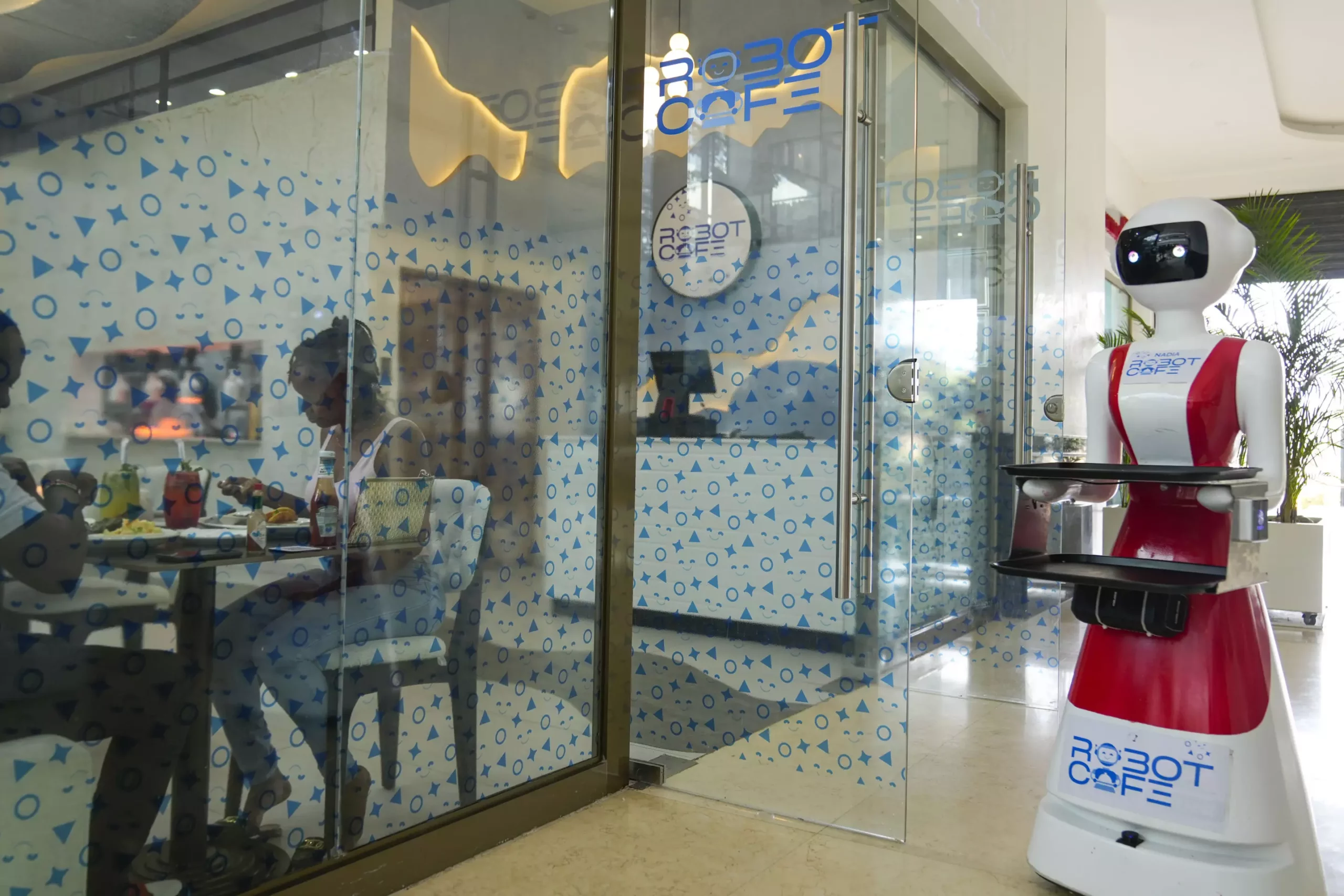In a bustling cafe in Nairobi, Kenya, children are captivated by the futuristic sight of robots seamlessly delivering meals to customers. This innovative concept, known as the Robot Cafe, has quickly become a popular attraction in the city. With a growing tech industry in Nairobi, this cafe stands out as a symbol of the technological advancements taking place in the region.
Nairobi, often referred to as The Silicone Savanna, has established itself as a hub for tech startups and innovations in East Africa. The presence of the Robot Cafe only solidifies this reputation, showcasing the city’s ability to embrace cutting-edge technologies. Cafe owner Mohammed Abbas took inspiration from his experiences in Asian and European countries to introduce robot service to Nairobi.
A New Dining Experience
The three robots – Claire, R24, and Nadia – glide gracefully among human waiters, adding a unique element to the dining experience. While they are preprogrammed to deliver food and interact with customers in a limited capacity, they rely on human waiters to handle more complex tasks. The robots offer a novelty factor that attracts curious customers eager to witness this blend of technology and hospitality.
Despite the excitement surrounding robot service in restaurants, there are challenges that come with incorporating this technology. Cafe manager John Kariuki emphasizes that robots cannot fully replace human waiters due to their limitations. While the investment in robots may seem costly, it is crucial to maintain a balance between automation and human touch in the hospitality industry.
Hospitality industry expert Edith Ojwang points out that there is room for both robotic and human service to coexist harmoniously. While some customers may prefer the efficiency of robotic service, others value the personal interaction and warmth that human waiters provide. The key lies in finding a balance that caters to the diverse preferences of customers in the industry.
As technology continues to advance, the future of restaurants will involve a careful integration of robots and human workers. While robots can enhance efficiency and provide a unique dining experience, they cannot replicate the emotional connection that human interaction brings. It is important for restaurant owners to consider the needs and preferences of their customers when implementing new technologies.
The Robot Cafe in Nairobi serves as a glimpse into the future of dining establishments. By embracing innovation while recognizing the value of human touch, restaurants can create a harmonious blend of technology and hospitality that caters to a wide range of customers. As the industry evolves, finding the right balance between robots and human workers will be essential for success in the competitive world of dining.


Leave a Reply